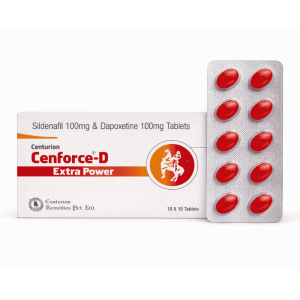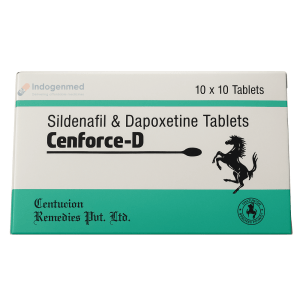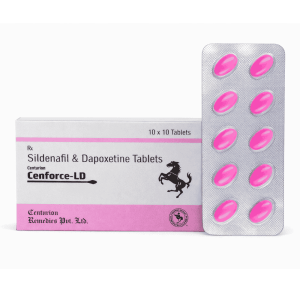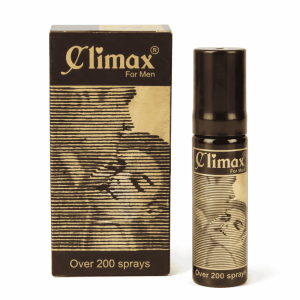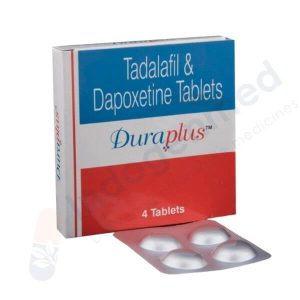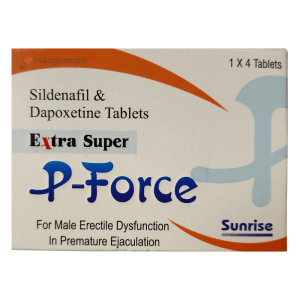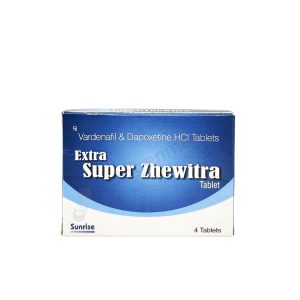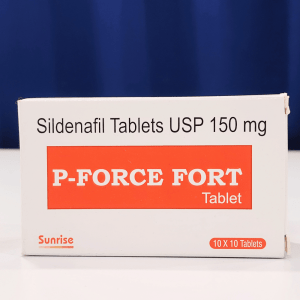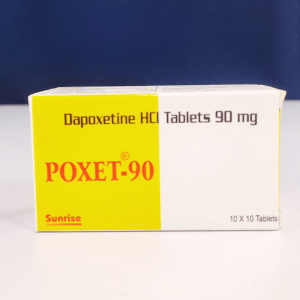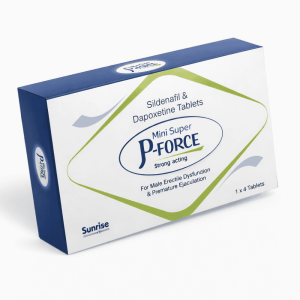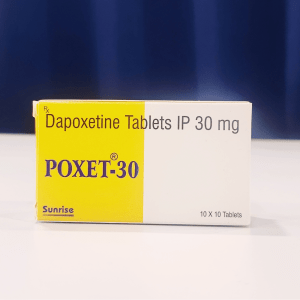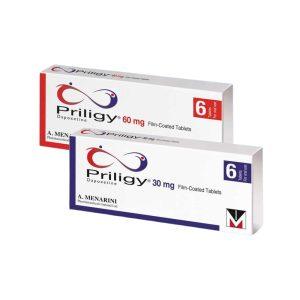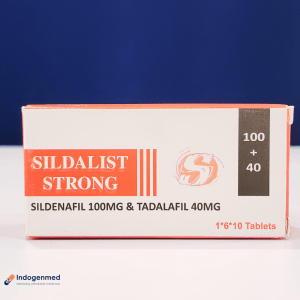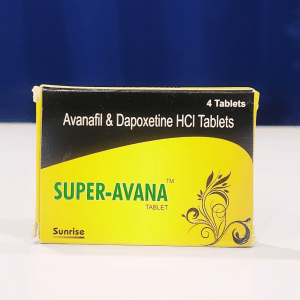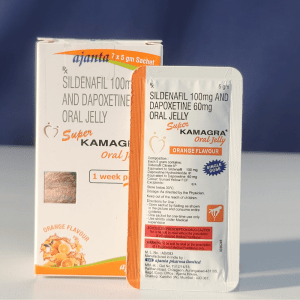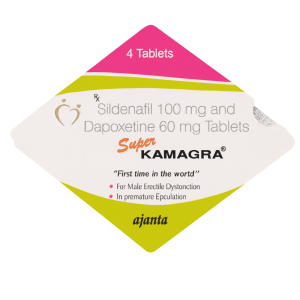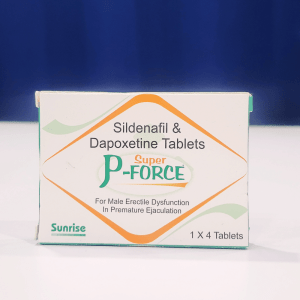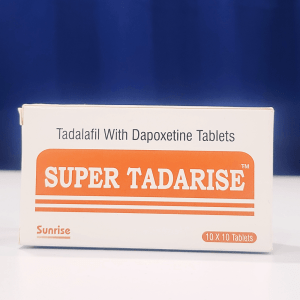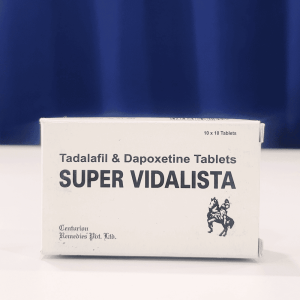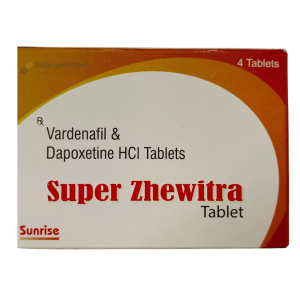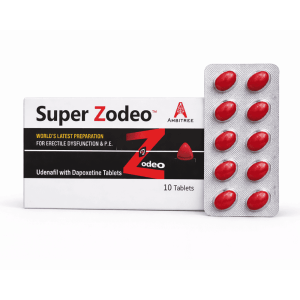Premature Ejaculation
Cenforce D Extra Power
Cenforce D Tablets
Cenforce LD Tablets
Climax Spray 12 Mg
Duraplus Tablet
Extra Super Avana Tablets
Extra Super P Force Tablets
Extra Super Zhewitra
indogenmed.org~21601
indogenmed.org~21966
Mini Super P-Force Tablets
Poxet 30 mg Tablets
Poxet 60 Tablets
Sildalist Strong Tablets
Super Avana Tablets
Super Kamagra Oral Jelly
Super Kamagra Tablets
Super P Force Tablets
SUPER TADARISE
Super Vidalista Tablets
Super Zhewitra
Super Zodeo Tablet
Recently Viewed Products
Table of Contents
Premature ejaculation is among the sexual dysfunctions of men that are pretty common. You will know it's happening when you ejaculate earlier than you would want to during sexual activity. It is not just distressing, but it can affect your partner and the destiny of your relationship.
It is often misunderstood. PE occurs due to many reasons. This can result in several physical problems. These problems can, in turn, result in deep psychological issues. You will often see it consistently prevalent in India. Around 30 to 50% of men have confessed to experiencing this at some stage.
In several cases, you need timely intervention. Proper management of your health is also supportive of boosting your sexual satisfaction and confidence.
Key Facts
- Prevalence: 30 to 50% of men globally are dealing with premature ejaculation. Still, many of them go unreported. It is considered to be one of the most common male sexual disorders.
- Onset: It can occur in both younger and older men with various underlying causes ranging from psychological stress to medical conditions.
- Treatability: There are effective premature ejaculation treatments available. A few techniques are medications, behavioral techniques, and alternative therapies.
- Impact: You could experience low self-esteem, anxiety, and other difficulties in your relationship.
- Awareness: An increase in research and public discussions has improved understanding and support for early intervention.
Notable Research Findings
- Your brain has a center called the nucleus paragigantocellularis. It is actively involved in your ejaculatory control.
- The levels of free testosterone are higher in men with PE than in those without.
- The traceability of the acid phosphatase and alpha-glucosidase is relatively low in the semen of men dealing with PE. These significantly lower levels are suggestive of possible dysfunction of your prostate and epididymis.
- When combined with counseling and medical therapy, the success rate is 85%.
Symptoms
Based on its symptoms and severity, premature ejaculation, or PE, could be mild, moderate, or severe.
Premature ejaculation (PE) can be classified into mild, moderate, and severe categories based on the time to ejaculation and its impact on sexual satisfaction. Here's a breakdown of the symptoms for each severity level:
Mild PE
- Ejaculation starts after 30 seconds to 1 minute of your penis penetrating the vagina.
- Occasional inability to delay ejaculation during sexual activity.
- Mild distress or frustration about sexual performance.
- Minimal impact on relationship satisfaction.
Moderate PE
- Ejaculation starts after 15 to 30 seconds of your penis penetrating the vagina.
- Frequent inability to delay ejaculation during most sexual encounters.
- Noticeable psychological distress, including embarrassment and anxiety.
- Moderate strain on sexual relationships and partner satisfaction.
Severe PE
- Ejaculation starts with your sexual activity or at its start, or 15 seconds immediately after your penis penetrates the vagina.
- There is a consistent inability to delay ejaculation in almost all sexual encounters.
- Significant psychological distress, potentially leading to avoidance of sexual intimacy.
- It severely impacts relationship satisfaction and overall quality of life.
Across all severity levels, individuals with PE may experience:
- You lack a grip on ejaculation.
- You may deal with negative personal consequences like frustration and decreased self-esteem.
- The condition may lead to a reduction in sexual satisfaction for both partners and result in relationship stress.
- You might experience a persistent worry about how you are performing sexually. This experience may result in a vicious cycle and exacerbate your premature ejaculation.
Mild cases might involve occasional quick ejaculation, while moderate to severe cases
See consistent patterns that affect intimacy and overall sexual health.
You need to understand the severity of PE. Your health, relationship patterns, and stress influence the severity of PE. No matter how bad PE is, you begin to have constant symptoms. In this condition, you must see your healthcare provider immediately for a proper medical examination.
Causes
Learn why you have premature ejaculation. By knowing the reason, you can tackle and treat your medical conditions well. Sometimes, the causes can be manifold, involving many physical, psychological, and lifestyle factors.
Physical Causes
- Neurological Factors: Sometimes, you may experience early ejaculation on account of an overly sensitive nervous system or related irregularities in the levels of your neurotransmitters. Researchers believe serotonin pathways help in controlling ejaculation.
- Hormonal Imbalances: Imbalances in your hormone levels, such as those of testosterone and thyroid, also influence your ejaculation timings.
- Inflammatory Conditions: Sometimes, your prostate and urethral infections or inflammations are troubling you.
- Genetic Predisposition: Genetic studies have shown familial trends of premature ejaculation, which contribute to its further advancement.
Psychological Causes
- Anxiety and Stress: Performance anxiety and chronic stress are well-documented triggers. When men are overly anxious, the body’s fight-or-flight response can precipitate an early ejaculatory reflex.
- Depression: A few mental health complexities, like depression, are negative stressors for sexual functioning. The emotional burden of depression may lead to a decreased ability to control ejaculation.
- Relationship Dynamics: Communication issues or unresolved conflicts with a partner can create emotional stress, which in turn may lead to premature ejaculation.
- Early Sexual Experiences: Negative or rushed sexual experiences during adolescence may set patterns that persist into adulthood.
Lifestyle Factors
- Substance Use: Consuming alcohol and smoking do impact your sexual performance. They are somehow linked to premature ejaculation.
- No Physical Activity: Not being physically active can decrease your cardiovascular health. Good heart health is vital for consistent sexual stamina.
- Poor Diet: A diet deficient in specific nutrients may result in early ejaculation. Certain foods might help cure PE.
When you ask, “What causes premature ejaculation?”, you must know that everyone can have different reasons.
Types
There are four types of premature ejaculation (PE):
- Lifelong (Primary) PE: This type is present from the first sexual encounter and is characterized by consistent early ejaculation, typically within one minute of penetration. It is believed to have a significant biological component, including genetic or neurological factors.
- Acquired (Secondary) PE: This type develops later in a man's sexual life after previously normal ejaculatory experiences. It is often defined as a reduction in ejaculation latency time to about 3 minutes or less.
- Natural Variable PE: This is considered a normal variation in ejaculation time rather than a clinical diagnosis. It occurs occasionally in specific circumstances but is not a consistent problem.
- Premature-like Ejaculatory Dysfunction: Also known as subjective PE, this type occurs when a man experiences distress about his ejaculation timing, even though his ejaculation latency time is seemingly normal.
It is important to differentiate between the types of PE. This can help your doctor treat your unique underlying issue and get you the best treatment that addresses every factor.
Risk Factors
There could be many factors triggering premature ejaculation. Early realization of these factors could be beneficial in early diagnosis and, accordingly, early treatment.
- Psychological Stress: Your risk of premature ejaculation may increase with increasing levels of stress, particularly that related to performance anxiety and issues with relationships.
- History of Depression: If you are constantly dealing with depressive thoughts, you are likely to experience premature ejaculation.
- Chronic Health Conditions: Conditions like diabetes, high blood pressure, and thyroid disorders have been associated with sexual dysfunction.
- Lifestyle Habits: Excessive addiction to alcohol, smoking, and an inactive lifestyle increases your chances of premature ejaculation.
- Genetic Influences: Genetic patterns, such as having premature ejaculation in your family history, are likely to increase your chances.
- Early Sexual Experiences: Negative or rushed early sexual encounters can lead to premature ejaculation later in life.
These factors can help you prevent it and seek necessary treatment early.
Diagnosis
Proper diagnosis of premature ejaculation is essential to determining the most effective treatment plan. Your doctor will follow a combination of the following methods:
Medical History and Symptom Review
- Detailed Interview: A comprehensive analysis of your sexual history, including how long and consistently you have been experiencing the symptoms. This will be pretty beneficial for your doctor in identifying whether you have this issue for life or acquired it during your birth.
- Relationship Assessment: Discuss your interpersonal dynamics and communication with your intimate partners. This will help you identify valuable insights into potential psychological triggers.
Physical Examination
- Genital Examination: A thorough examination of your genitals helps determine whether you have any anatomical abnormalities. It also helps your doctor know whether you have been suffering from any infections likely to trigger your condition.
- Neurological and Hormonal Evaluation: Your doctor may ask you to undergo several blood tests to assess your hormone levels and other biological markers. These tests are indicative of what issues you are dealing with.
Psychological Evaluation
- Mental Health Screening: Your doctor may assess you for mental health issues related to anxiety, depression, and other psychological triggers. These are important to determine both the causes and consequences of your premature ejaculation.
- Behavioral Assessment: Understanding sexual arousal patterns and performance can help tailor interventions such as cognitive-behavioral therapy.
Diagnostic Tests
- Intravaginal Ejaculatory Latency Time (IELT): This test measures the time from the beginning of intercourse until ejaculation. It is an objective metric often used in clinical studies to evaluate treatment efficacy.
- Questionnaires and Surveys: Standardized tools may be used to assess the severity of the condition and its impact on quality of life.
It is essential that your diagnosis happens early and is accurate. This provides a fair time for your doctor to understand the triggers of your condition. At the same time, it is pretty beneficial in designing a prompt intervention, which is quite helpful in restoring your lost sexual confidence. Nevertheless, it also boosts your overall well-being.
Prevention
Although not all cases of premature ejaculation can be prevented, several lifestyle and behavioral strategies may help in lowering the risk:
- Stress Management: Practice stress-relieving activities on a regular basis, including meditation, deep breathing exercises, or yoga. Reducing performance anxiety can be key to learning how to cure premature ejaculation.
- Healthy Food Choices: Eat a balanced diet with essential nutrients and plan a healthy exercise routine. Avoid alcohol and tobacco.
- Regular Medical Check-Ups: Schedule routine check-ups with your doctor to examine your physical and emotional health. At the same time, discuss all your concerns with them for a healthy sexual life.
- Communication with Partners: Communicate about your sexual expectations and experiences honestly and openly with your intimate partners.
- Behavioral Techniques: Techniques like the “stop-start” method or “squeeze” technique, under professional guidance, have proven effective in delaying ejaculation.
These preventive measures are pretty crucial for you to reduce the severity of your triggers of premature ejaculation. Also, it helps you maintain a satisfying sexual experience. You must follow these steps, along with routine professional advice and treatment.
Specialists to Visit
If you are facing issues with ejaculation, the first thing to do is to consult your doctor. They will assess you physically and your personal and family medical history. Once your condition is confirmed, they will devise a holistic care plan for treating your condition.
You might frequently be interacting with:
- Urologist: A urologist specializes in male reproductive and urinary health. They can detect underlying physical issues and deliver treatments for conditions like premature ejaculation.
- Sex Therapist: A certified sex therapist can address the psychological and relational aspects of PE. This can help couples develop better communication and intimacy strategies.
- Psychologist or Psychiatrist: Mental health professionals play a significant role, especially when performance anxiety, depression, or stress is involved. They can offer cognitive-behavioral therapy (CBT) and mindfulness techniques.
- Endocrinologist: If hormonal imbalances are suspected, an endocrinologist can evaluate and treat conditions related to testosterone or thyroid hormone irregularities.
- General Practitioner: Your primary care doctor can be the first point of contact to evaluate your causes and symptoms. Your general practitioner offers you the initial advice by referring you to a specialist as and when necessary.
Treatment Options
You can check with your doctor whether you will be subjected to individual or combined therapies for addressing your premature ejaculation. These therapies are unique for every individual. Below are several treatment options available:
Medical Treatments
- Premature Ejaculation Medications: Medications such as selective serotonin reuptake inhibitors (SSRIs) are commonly prescribed off-label to delay ejaculation. Such medicines work by changing the mode of action of your brain's chemical signals to prolong the time before ejaculation. In some cases, topical anesthetic creams are used to reduce penile sensitivity.
- Hormone Therapy: For men whose symptoms are linked to hormonal imbalances, hormone replacement or regulation may be recommended.
- Combination Therapy: In many instances, combining medication with psychological or behavioral therapy results in the best outcomes.
Behavioral Therapies
- Stop-Start Technique: This method works by stimulating your penis until it ejaculates. It then pauses until the urge diminishes. Over time, this practice can help extend the duration of intercourse.
- Squeeze Technique: Similar to the stop-start method, this includes applying pressure to the base of the penis to delay ejaculation.
- Cognitive-Behavioral Therapy (CBT): The CBT therapy works on your underlying causes, such as anxiety and stress. CBT is ideal for improving your ejaculation for a good sexual experience.
Complementary Approaches
- Herbal Remedies: You have several natural supplements available for treating your issues related to premature ejaculation. The research on these supplements is still evolving. There are herbs available for promoting your overall sexual health.
- Psychosexual Counselling: Couples or individual counselling sessions can address the emotional and relational aspects of premature ejaculation, creating a more supportive environment for recovery.
You need to work closely with your doctor to address all your concerns related to premature ejaculation.
An effective treatment plan can be of multiple parts. It can include PE medication and lifestyle modifications. This provides long-term sexual performance and overall quality of life.
Home Care & Lifestyle Changes
You can even implement home care strategies in combination with your professional therapies. Lifestyle modifications could also work wonders for you. The following are some self-care activities for managing your symptoms effectively. There are always new ways available for you to learn how to treat and stop your premature ejaculation.
Diet and Nutrition
- Balanced Diet: Eat a rich diet with plenty of vegetables, fruits, whole grains, and lean proteins. It not only supports general health but may also improve sexual function.
- Foods to Cure Premature Ejaculation: Certain foods improve blood flow and manage a healthy hormonal level. For example, zinc-containing foods like lean meats and pumpkin seeds. Antioxidant-rich foods such as green leafy veggies and berries are good.
- Hydration: Staying well-hydrated is vital for overall bodily function and can enhance sexual performance.
Physical Activity
- Regular Exercise: Plan 30 minutes daily for exercising. It improves cardiovascular health and reduces stress. This can help regulate hormone levels.
- Kegel Exercises: These exercises are great tools for building pelvic floor muscles. They help enhance ejaculatory control. These exercises not only improve endurance during sexual activity but also contribute to overall sexual satisfaction.
- Stress Relief Through Movement: Yoga improves the flexibility and relaxation of your body.
Mental and Emotional Health
- Mindfulness and Meditation: Practice mindfulness techniques for managing the anxiety that often accompanies premature ejaculation. Meditation and breathing are good at reducing stress. These exercises enable males to be in the moment during their physical intercourse.
- Therapeutic Support: Whether through individual counseling or group therapy, addressing underlying psychological factors can empower men with practical strategies for managing their symptoms.
- Sleep Hygiene: Do not disturb your sleep to keep your health in a good state. Good sleep helps keep your stress levels under control. A well-rested body is better able to manage stress levels.
Lifestyle Adjustments
- Limiting Substance Use: Alcohol and tobacco are not only injurious to your health but also to your sexual experience.
- Open Communication: Have open-ended conversations with your intimate partners. It is pretty beneficial to ease your sexual performance anxiety to enjoy a more fruitful sexual experience.
- Time Management: Prioritizing relaxation and ensuring there is ample time for intimacy can reduce pressure during sexual encounters.
In addition to your regular therapy with your physician, you can request that they implement modifications in your lifestyle and home care. The changes are aimed at the physical symptoms of your premature ejaculation and are necessary to create a supportive ambience that will help improve your physical and psychological well-being.
Complications
If left untreated, premature ejaculation complicates your physical and emotional well-being. Some issues are:
- Relationship Strain: Repeated stages of early ejaculation may cause stress in your intimate relations. Your partner may experience dissatisfaction or frustration, resulting in conflicts or reduced intimacy.
- Emotional Distress: Premature ejaculation can trigger feelings related to depression, embarrassment, and lowered self-esteem. Constant thinking about enhancing your sexual performance could result in increasing the levels of your chronic anxiety.
- Sexual Dysfunction Cycle: The sexual dysfunction cycle is a common cause of anxiety and stress issues.
- Avoidance Behavior: Certain men may not participate in sexual activities due to fear of failure.
- Effect on Overall Well-Being: Psychological stress in your relationship might spill over into other areas of your life, impacting your life and mind.
Comorbidities
Premature ejaculation can sometimes occur alongside other health conditions. Recognizing these comorbidities is essential for a holistic treatment approach.
- Erectile Dysfunction: It is not uncommon for men with premature ejaculation to also experience difficulties achieving or maintaining an erection.
- Depression and Anxiety: The mental health disorders create a bidirectional relationship with premature ejaculation. It is a condition where one condition exacerbates the other.
- Cardiovascular Issues: You may need to evaluate your heart conditions comprehensively.
- Diabetes: Your health issues, such as diabetes, can severely impair your nerve sensitivity and blood flow. Diabetes, too, has a role in causing early ejaculation.
- Hormonal Imbalances: Imbalanced levels of testosterone and thyroid are also linked to premature ejaculation. This highlights the importance of undergoing endocrine tests.
Alternative Therapies
Besides the conventional treatment options, you can explore alternative options. These complementary approaches may help improve overall sexual function and provide additional benefits:
- Acupuncture: This traditional Chinese medicine practice has been used by some men to improve ejaculatory control by targeting specific pressure points that influence sexual function.
- Herbal Remedies: Several herbs, including ginseng, Tribulus terrestris, and saffron, enhance sexual stamina. While clinical evidence is still emerging, some men find that these natural supplements help reduce symptoms.
- Yoga and Meditation: Regular yoga can improve physical flexibility and mental relaxation. Meditation techniques help lower stress and anxiety, which are known to exacerbate premature ejaculation.
- Nutritional Supplements: You can ask your doctor for vitamin supplements. Many are on the market, such as zinc, vitamin E, and mineral supplements. A balanced diet is quite helpful in supporting your body's natural processes for delaying your ejaculation.
- Aromatherapy and Massage: Aromatherapy and massage are beneficial in promoting relaxation.
Always talk to your doctor before starting any of these alternative therapies, as well as conventional ones. These ensure safety and efficacy.
FAQs
Q1: What is Premature Ejaculation?
A: Premature ejaculation refers to the condition where ejaculation occurs sooner during sexual activity than a man or his partner would prefer.
Q2: How Common is Premature Ejaculation?
A: Studies suggest that premature ejaculation affects nearly 30% to 50% of men worldwide at some point in their lives. Its prevalence can vary based on age, psychological stress, and overall health.
Q3: What Causes Premature Ejaculation?
A: The causes of premature ejaculation are manifold. This includes neurological factors, hormonal imbalances, and lifestyle habits. It is a combination of physical and psychological elements contributing to the condition.
Q4: How is Premature Ejaculation Diagnosed?
A: Your doctor may ask you about your individual and family history. You will be subjected to both physical and psychological evaluations. Several tools, such as Intravaginal Ejaculatory Latency Time (IELT) and a standardized questionnaire, are available in the market to help you understand the severity level of your condition.
Q5: Are There Effective Treatments Available?
A: Yes. You have many treatment options available. These options range from behavioral techniques such as stop-start and squeezing methods. At times, you will require medical interventions using medicines. Many have shown positive results with combined approaches tailored to their specific needs.
Q6: What Role Do Lifestyle Changes Play?
A: Alterations to your lifestyle include regular exercise and a balanced diet (including foods to cure premature ejaculation). They also include complementary measures for managing stress and candid, open-ended discussions with your partner.
Q7: How Long Does It Take to See Improvement?
A: Improvement times vary depending on the treatment approach and individual circumstances. Some men notice positive changes within a few weeks, while others may require several months of combined therapy to achieve lasting results.
Q8: Is It Possible to Permanently Cure Premature Ejaculation?
A: Both proper treatment and adjustments to your lifestyle are essential for establishing control over your ejaculation. Some of the individual cases can be managed successfully with simple options; others require lifelong conditioning with ongoing therapies and strategies for effective sexual satisfaction.
References & Citations
https://www.mayoclinic.org/diseases-conditions/premature-ejaculation/symptoms-causes/syc-20354900
https://www.indiaivf.in/blog/premature-ejaculation-definition/
https://www.ncbi.nlm.nih.gov/books/NBK546701/
https://pubmed.ncbi.nlm.nih.gov/11122954/
https://emedicine.medscape.com/article/435884-overview
https://my.clevelandclinic.org/health/diseases/15627-premature-ejaculation
Disclaimer
This content is for informational purposes only and does not replace professional medical advice. Always consult a qualified healthcare provider for diagnosis and treatment recommendations regarding premature ejaculation. The strategies and treatments mentioned should be tailored to your individual health needs.

